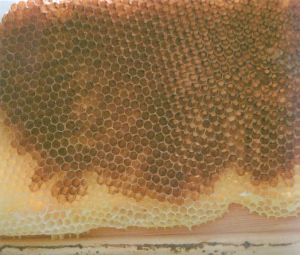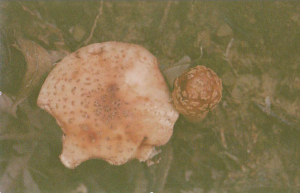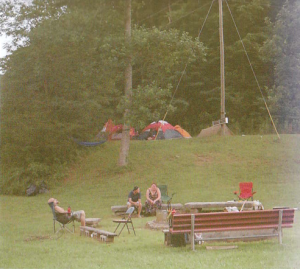My independent study most clearly relates to the topic of sustainability. I wanted to know how “sustainable” local can get. When we toss around the word Local, we could mean 80 miles away; we could mean the other side of the state. What would it mean to source locally on a micro-scale; what would it mean to cultivate products from the home, or just right outside?
This idea is not so new. In 1977, Wendell Berry warned that Americans were loosing ownership over the process of creating their food in favor of culturally “superior,” specialized knowledge:
“The strict competences of independence, the formal mastery, the complexities of attitude, and know-how necessary to life on teh farm, which have been in the making in the race of farmers since before history, all are replaced by the knowledge of some fragmentary task…The reverse movement–a reverse movement is necessary, and some have undertaken it–it is uphill, and it is difficult. It cannot be fully accomplished in a generation” (Wendell Berry, The Unsettling of America)
This reverse movement is lead of course by the farmer, but also by the homesteader. Providing oneself agency to challenge their need to consume (at least at the sheer volume that is considered normal in our society) is the very task of the Homesteader. What might you be able to make rather than buy? Do you really need to buy all of your produce at the farmers market, or can you supplement your purchases with a personal garden?
During July 12-14, I took a trip up to Berea, Kentucky, where I attended the annual Whippoorwill Festival–a weekend a of workshops on Homesteading and living off of the land. I took a class on bar-top bee-keeping (a method one can use in their own backyard) and another on mushroom foraging.
At the end of the day, I had a bundle of notes on how to build a wooden bee-bar and maintain a wild-caught bee population in the back yard, and a bag of chanterelle mushrooms from the Appalachian woods. (I later took these back to Louisville, doused them with olive oil and salt and broiled them for a bit…they were great.)
What I learned at the festival was perhaps and echo of Berry’s initial words, re-engaging in the process of producing ones own food is difficult. It can absolutely feel straining to challenge a way of life with which our society feels so comfortable; to purchase, to consume.
Being self-sufficient often takes time, but it doesn’t have to. What we need to understand is that there are ways to incorporate self-sufficiency without falling off of the grid completely. Consider the quote: “Walk down an urban backstreet, into a park…or through country lanes, and there’s a high probability that you’re walking past free food” (Rohan Anderson).
There are ways to be an urban-forager and an urban-homesteader. What must be considered is the possibility of balance.
Links:
A map for urban foraging in Louisville: http://louisvillefoodblog.wordpress.com/2013/05/28/louisville-fruits-nuts-foraging-spots/
Whipoorwill: http://www.whippoorwillfest.com/



